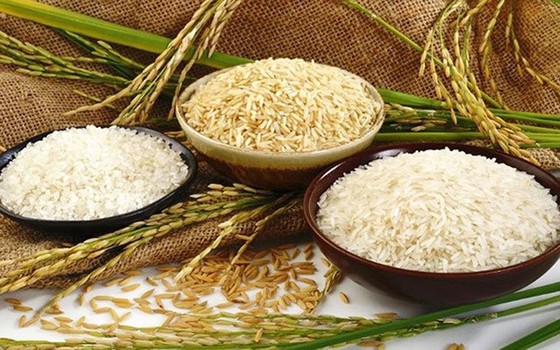Dr. Tran Huu Hiep
Saigon Investment - 27/06/2022 05:00 (GMT+7)
 |
| Illustrative photo. |
Vietnam’s rice industry in particular must prepare to reap benefits, along with other economic sectors and agricultural enterprises. In all this, the resilience and innovation of the Vietnamese farmers will hold the key when faced with global market unpredictability.
Soaring food prices
According to the Food and Agriculture Organization of the United Nations (FAO), the world food index in April increased by 30%, as compared to the same period last year, and 60% more than in 2019, just before the outbreak of the Covid-19 pandemic. This is a record increase if we compare the food prices which were at their highest in 2008 and 2011. Along with general food prices, global price of rice also increased in May this year for the fifth consecutive month in a row. Many organizations are now forecasting that the world food market prices will continue to increase more when there is a further shortage of supply and the risk of food security increases in many countries.
Recently, India has announced a ban on the export of rice, even though it is among the top three rice exporters in the world and the second largest producer of wheat, after China. Indonesia has also banned exports of some palm oil varieties in an effort to lower soaring domestic cooking oil prices. In some African countries, many mills that have run out of wheat supply have had to stop operating completely. Rising food prices have forced people across the globe to find cheaper food substitutes for consumption. Now only time will tell how this rise in global food prices will affect Vietnam, and how the world will tackle an oncoming and inevitable food crisis.
As a largely agricultural country, Vietnam is among the top fifteen exporting countries of agricultural products in the world. Vietnam exports many products such as coffee, rice, tea, cashew nuts, and seafood, which accounts for a large world market share. Despite being severely affected by the Covid-19 pandemic in 2021, Vietnam's agricultural exports still reached a turnover of USD 48.6 bn, up by 14.9% over the same period in the previous year. Total export turnover of agricultural products nationwide in the first five months of 2022 continued to increase by 16.8%, compared to the same period last year. Currently, there are nine products with export value of over USD 1 bn, which include coffee, rice, cashew nuts, vegetables, fruits, pangasius, and shrimp.
On the other hand, Vietnam needs to import many agricultural products for essential domestic consumption. There is a high requirement for raw materials for the animal food industry, aquaculture, and many other food products and food processing industries. The confectionery and food manufacturing industries that use a lot of flour and cereal are under great pressure due to the broken supply chain and high input material prices. For animal feed alone, Vietnam has to import more than 22 million tons of raw materials every year. The increase in prices of these materials in the world market puts pressure on production costs and greatly affects inputs, as well as negatively affecting farmers weighed under limited credit conditions. The production input of farmers is also under heavy pressure because of rising prices of fertilizers, agricultural materials, and petroleum.
Farmer benefits
Under the current fluctuation in world market prices and increased concerns about food security, it is imperative that Vietnam ensures a secure rice economy. Vietnam’s rice industry has made great strides from a traditional agricultural product to a knowledge-based economy, but we still need to further accelerate and participate more actively in the global value chain. In general, the rice industry needs to continue to overcome the mindset of heavy input and light output mode, increase acreage, crops, and improve agricultural products, especially the use of sub-standard agricultural products. The quality standards must now meet the world class market standards.
In order to do that, Vietnamese rice production urgently needs new support and resilience from the value-added rice industries such as consumer foods industry of edible oil, rice milk, and nutritional drinks; materials and supplies; pharmaceutical industry; cosmetics; and aquaculture industries, to name a few. Vietnam also has to improve investment technology through deep processing and comprehensive digital transformation. Farmers and consumers are familiar with adapting technology applications, promoting innovation, and taking advantage of the current digital economy. However, digital transformation needs a value chain which will closely link the products with technology and concerned markets.
To ensure that real benefits reach the farmers, we need to find output for rice seeds to support farmers, and more importantly enforce a related mechanism to solve the costs and benefits problem. By taking advantage of rising world food prices, it is also necessary to rationalize production, minimize input costs to increase profits from the rice industry, and thereby bring practical benefits to the farmers.
Dr. Trần Hữu Hiệp(SGI) - Vietnam will have to seize opportunities arising from a continuous increase in world food prices and be prepared to face all unexpected challenges.
https://www.saigondautu.com.vn/vietnam-faces-challenges-from-rising-food-prices-post95553.html
Nhận xét
Đăng nhận xét